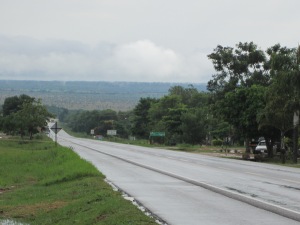Lindo means pretty in Spanish. And while it means that in Paraguay too, especially when talking about people, it also carries a deeper meaning. I like to call it the “lindo factor.” Let me come clean from the outset, I love the lindo factor. Actually, it’s one of my favorite things about Paraguay.
In short, the lindo factor is the emphasis Paraguayans put on making things look nice. Lindo doesn’t just mean clean and it doesn’t mean hygienic (and in Paraguay clean and hygienic are not the same thing). The emphasis is on how things look overall.
Let me describe the lindo factor from within my American upbringing and then expand it to the Paraguayan setting. My mother has always been keen on keeping the house neat, which to her means no dirt and no dust; things are put away in their places in an organized manner; and curtains, flowers, art, and other objects are strategically placed to make things look pretty. In this context, the emphasis is on making things perfect. All this together, gives my mom’s house a serious dose of the lindo factor.
Now, in the Paraguayan context, as much importance is put on making things pretty and neat as in my mom’s house, but there isn’t the pressure to make things perfect. There’s a lot of sand here in Paraguay so there’s always sand on the floor. There’s dust and spiders on the ceiling beams and the walls show dirt and water marks. Things like seat covers might be stained or slightly torn and the walls or doors might have children’s writing left over from the tender years. But, you will never walk into a messy Paraguayan home. There is a table cloth on the table, the floors are swept everyday, the dirt in the lawn is swept everyday, and sometimes you’ll find a ceramic figurine outside or a painting inside. The first 3 feet of the trees outside might be painted white for no other reason than it makes them more “lindo.” Things might be piled on a table (because there are no drawers or shelves available), but nothing is left on the floor. Everyone in the house helps keep it clean.
The lindo factor is one thing that has made living in Paraguay easier for me. I’ve always felt that the neatness of one’s living space is a reflection of the neatness of her mind.













